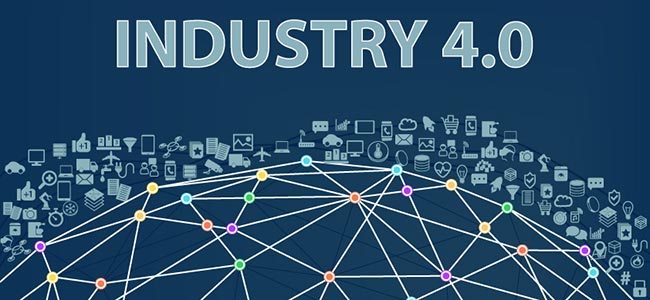
Jul 22, 2020
Blog Digital World A Brief Guide to the 4th Industrial Revolution
What comes to mind when you hear the words “industrial revolution”? Is it the date 1784 and Cartwright’s initial mechanical loom? Is it an image of a power-driven assembly line? Or maybe it’s a bit more recent, as in the late 90s that brought with it computing and early robotics.
Whichever image resonates with you, you would be right. The world has experienced three industrial revolutions, and they have all brought with them their own set of innovations. While they have all been both crucial and fascinating in their own right, they are making way for the 4th round of innovation, also known as Industry 4.0.
The advent of Industry 4.0 is made possible due to the innovations made on already existing technologies, which is what distinguishes it from the previous industrial revolutions. When the computer was introduced back in the third wave of innovations, it was disruptive in that it was a new technology that created infinite possibilities. And since the boom of the internet, imagining what the future could look like was easy; what hindered progress was a lack of production. And that is the disruption that Industry 4.0 is making.
The result of Industry 4.0 won’t be a smarter phone or watch. It won’t be flying cars and space travel, though it will open doors to those possibilities. Rather, through the combination of Internet of Things (IoT) and cyber-physical systems, Industry 4.0 will give birth to the virtual factories. Digitally connected machines will become smart machines, and through the input of big data, factories will become extremely productive, highly efficient and companies will be able to optimize their operations seamlessly.
Defined as an integrated manufacturing system, a virtual factory is a complete model made up of major subsystems that operates thanks to communication that occurs between networks—all with little to no human assistance needed.
While the idea of a virtual factory is far from novel, the implementation remains elusive. At the moment, figuring out how the networks talk to each other to create the cohesion necessary for the factory to be operational still requires some work. Currently, companies are working on taking their already computer-integrated manufacturing operations to the next level—a process that can occur only with the seamless interaction between networks. That kind of sophisticated tech is still in being born.
Which is exactly why Industry 4.0 is not only incredibly important to the future of manufacturing, but also is an industrial revolution that is occurring right now. With each new development, we are one step closer to an entirely different approach to product creation and manufacturing. It’s time to take the process online, and in doing so, manufacture the future.
To dive deeper into the manufacturing industry and how it’s shaping our future, explore our reports below:
Clara Mouawad is the content writer at BCC Research. She contributes to our blog, social media, email marketing and more.

From smartphones to satellites, antennas play a vital role in enabling the seaml...

Introduction Artificial Intelligence (AI) and the Internet of Things (IoT) are r...

We are your trusted research partner, providing actionable insights and custom consulting across life sciences, advanced materials, and technology. Allow BCC Research to nurture your smartest business decisions today, tomorrow, and beyond.
Contact UsBCC Research provides objective, unbiased measurement and assessment of market opportunities with detailed market research reports. Our experienced industry analysts assess growth opportunities, market sizing, technologies, applications, supply chains and companies with the singular goal of helping you make informed business decisions, free of noise and hype.